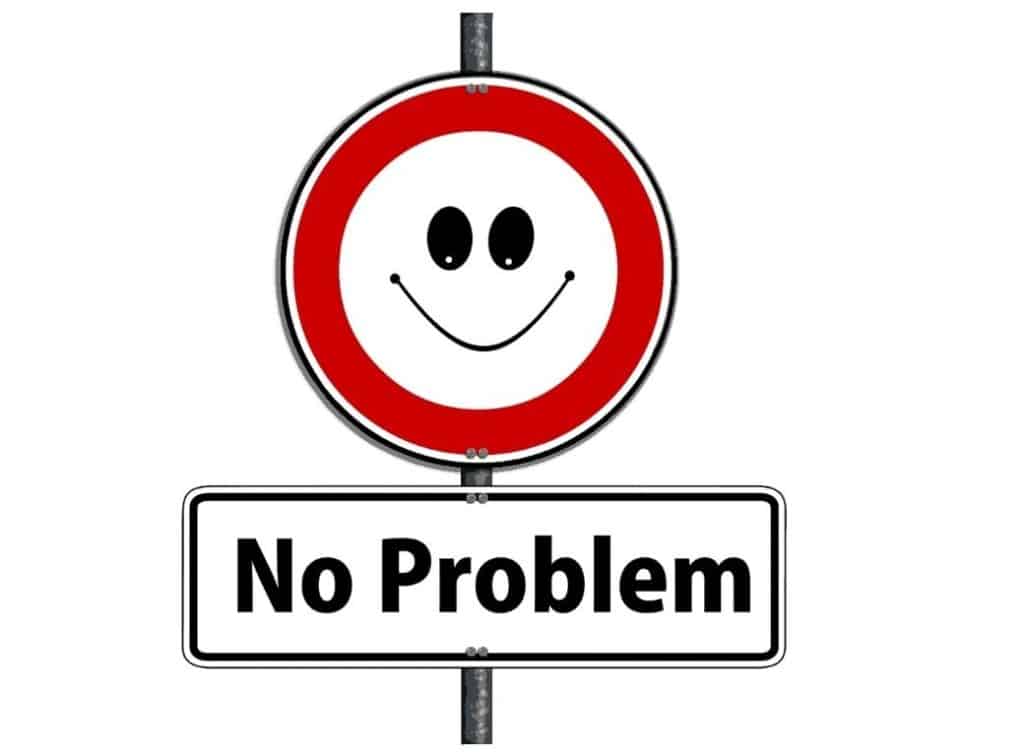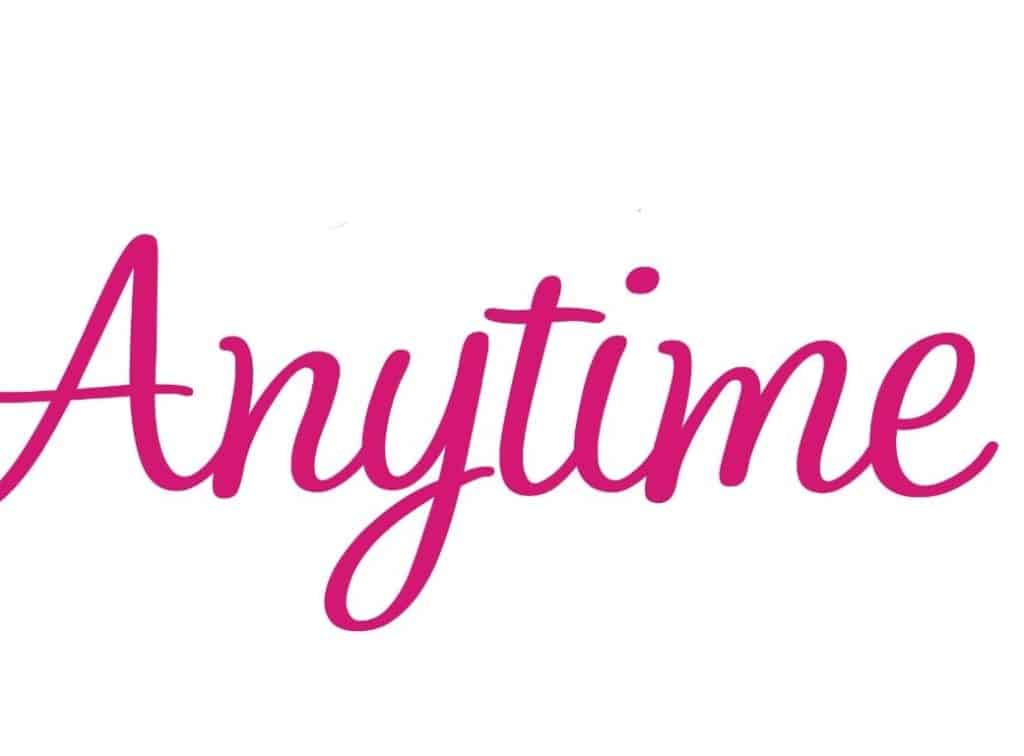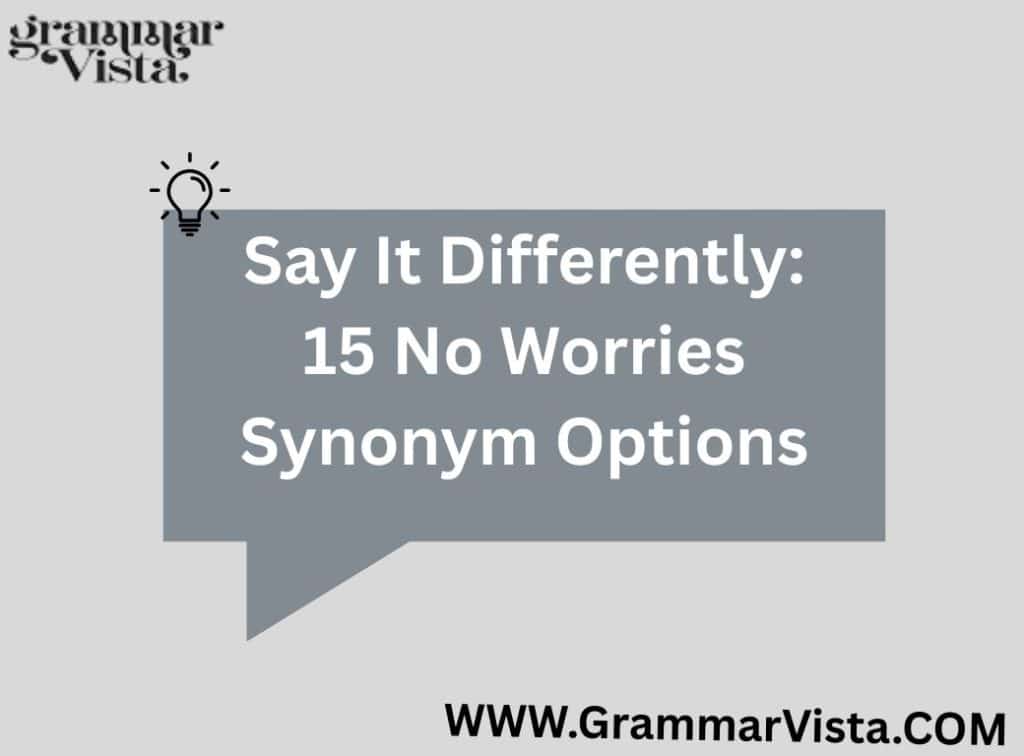Did you know that the phrase “no worries” has become so commonplace that it often loses its impact? In today’s fast-paced communication landscape, finding fresh ways to express sentiments like “no problem” or “Don’t mention it” can enhance your interactions, making them feel more genuine and thoughtful.
This guide explores 15 No Worries Synonym to these familiar phrases, providing you with a toolkit of expressions that convey warmth and willingness to assist. By the end, you’ll be equipped with new phrases to say “Glad to assist” or “Sure thing” while keeping your conversations engaging.
It’s All Good
“It’s all good” serves as a comforting mantra that transcends mere words, encapsulating a mindset that encourages positivity and resilience. When we embrace this phrase, we cultivate an environment in which people can share their opinions and worries freely, without the anxiety of being judged.
This assurance fosters a sense of belonging, allowing individuals to express their vulnerabilities while feeling supported. In turn, such openness paves the way for deeper connections and understanding among friends, family, and colleagues.
Adopting the “it’s all good” attitude is more than just a casual response; it’s an invitation to engage in honest dialogue. By nurturing a spirit of empathy, we create safe spaces where differing viewpoints can coexist harmoniously.
Don’t Mention It
“Don’t mention it” is more than just a casual response; it’s a reflection of our shared human experience. This phrase conveys a sense of humility, suggesting that the assistance provided was simply an extension of our natural inclination to support one another.
By using this expression, we subtly reinforce the idea that kindness should be commonplace, rather than an exceptional act deserving of excessive gratitude. In a world where every gesture can feel transactional, responding with “don’t mention it” helps to bridge the gap between formality and genuine connection.
It invites a deeper understanding that our interactions are often rooted in empathy rather than obligation. This phrase encourages us to cultivate a culture of support, where helping others becomes a routine part of our daily lives, fostering stronger relationships and a more compassionate community.
No Problem
In the realm of professional interactions, the expression “no problem” acts as a comforting reply that indicates a willingness to help and a relaxed attitude. This informal phrase is commonly used in different situations, enabling people to show their readiness to assist without being overly formal.

While “no problem” is generally well-received, employing alternative courteous phrases can enhance the quality of communication and a professional way to say no worries. Consider using phrases like “my pleasure” or “happy to help,” which maintain a friendly tone and also express genuine enthusiasm for providing assistance.
These alternatives can foster a more positive atmosphere, reinforcing relationships and promoting collaboration. By diversifying your responses, you can tailor your language to suit the context and the individual you’re engaging with, making your interactions feel more personalized and thoughtful.
No Sweat
The phrase “No sweat” is a laid-back but powerful way to express that the help given was simple and not troublesome. This casual expression conveys a sense of ease, suggesting that the task at hand was handled effortlessly.
By using “no sweat,” you’re not only reassuring someone that their request was manageable, but you’re also fostering a relaxed atmosphere where both parties feel comfortable communicating openly. Embracing the spirit of “no sweat” can transform interactions, encouraging collaboration without fear of judgment or pressure.
It reflects a mindset that values simplicity over complexity, inviting people to approach challenges with confidence. When you adopt this phrase in conversation, it sends a message that support is readily available, creating an environment where creativity and problem-solving can thrive without the burden of stress.
You’re Welcome
A widely accepted and well-known reply to someone expressing thanks is “you’re welcome.” This response acknowledges the gratitude being shown and strengthens the connection between the individuals involved.
By saying “you’re welcome,” you create an atmosphere of mutual respect and appreciation, enhancing interpersonal relationships. It serves as a bridge that fosters goodwill and encourages open communication, making it an essential tool in social interactions.
“You’re welcome” can be infused with warmth and sincerity, transforming a simple exchange into a memorable moment. Whether it’s in a casual setting or a more formal environment, this phrase embodies a spirit of generosity and kindness.
My Pleasure
“My pleasure”, another word for no worries; it encapsulates a genuine enthusiasm for helping others. This expression demonstrates a dedication to ensuring customer happiness and promotes a welcoming environment for dialogue.

When you say “my pleasure,” you’re not just responding to a request—you’re actively reinforcing a sense of community and support. This simple phrase can transform the dynamics of an interaction, making customers feel valued and respected.
In service exchanges, “my pleasure” emphasizes that assisting others is an appreciated endeavor rather than a chore. It invites a deeper connection, suggesting that the person providing the service finds joy in their role. By adopting this phrase, individuals and businesses can cultivate an atmosphere where positivity flourishes, leading to more meaningful interactions and fostering long-term relationships.
Not a Big Deal
“Not a big deal” is a phrase that encapsulates a carefree attitude toward circumstances that might initially seem worrisome or challenging. By employing this expression, individuals convey a sense of ease, reassuring others that the situation is manageable and not worthy of undue concern.
This laid-back reply fosters a more relaxed atmosphere, encouraging open dialogue without the weight of seriousness hanging over the conversation. When someone says “not a big deal,” it subtly communicates confidence and control over the situation at hand.
It allows people to navigate through potential stressors with grace, transforming what could be moments of anxiety into opportunities for candid exchange. This approach not only alleviates tension but also invites collaboration and problem-solving, creating a supportive environment where worries can be shared and addressed constructively.
Happy to Help
In the realm of customer service, cultivating an optimistic outlook is crucial for promoting collaboration and clear communication. Adopting a “Happy to Help” approach enriches the interaction and also fosters an environment where customers feel valued and understood.
When you express genuine enthusiasm for assisting others, it transforms a mundane transaction into a meaningful exchange. This mindset encourages a proactive attitude, empowering both the service provider and the customer to work together toward effective solutions.
The phrase “Happy to Help” embodies a commitment to outstanding service that resonates deeply with clients. It signals a readiness to go above and beyond, creating a rapport that can lead to long-term loyalty. By embracing this positive phrasing, service professionals can diffuse tension and instill confidence, making challenges feel more manageable.
Anytime
The term “anytime” suggests preparedness and also promotes an atmosphere of accessibility and openness. When you say “anytime,” you convey a willingness to engage, signaling that you’re ready for interaction no matter the circumstances.

This simple word invites others to reach out without hesitation, fostering a sense of community and shared purpose. How to say no worries professionally is one of the most asking question. In professional settings, using “anytime” can transform a mundane exchange into a more inviting dialogue, encouraging collaboration and participation.
“Anytime” enhances the fluidity of communication, breaking down barriers that often hinder spontaneous exchanges. It suggests a flexible mindset, allowing for ideas to flow freely and organically. When we embrace this term, we create opportunities for deeper connections, as it implies that discussions can happen on our own terms and timelines.
No Trouble
When someone expresses gratitude or concern about imposing on your time, responding with “no trouble” not only alleviates their worries but also reinforces a collaborative spirit. This phrase clearly indicates that any slight hassle created by a request is simple to handle.
By using “no trouble,” you showcase your willingness to lend a hand, transforming what could be a stressful interaction into a supportive exchange. It’s a small phrase, yet it carries significant weight in fostering an environment where help is offered freely and without hesitation.
The term “no trouble” suggests a readiness to assist others readily, promoting an atmosphere of teamwork and empathy. In workplaces or personal relationships, this phrase can break down barriers, encouraging open communication and mutual support.
Glad to Assist
Offering assistance to others fosters a supportive and cooperative environment, and the phrase “Glad to Assist” embodies this idea beautifully. It conveys not just a willingness to help but also an enthusiasm that can significantly enhance the customer experience.
When you say “Glad to Assist,” it signals to others that you are genuinely invested in their needs, creating a rapport built on trust and mutual respect. This expression is more than just polite; it reflects a commitment to exceptional service.
In today’s fast-paced world, where interactions can often feel transactional, adopting such a warm phrase can transform a simple exchange into a memorable encounter. By embracing phrases like “Glad to Assist,” individuals and businesses alike can differentiate themselves, ensuring customers feel valued and supported, ultimately fostering loyalty and satisfaction.
All Good Here
What to say instead of no worries? “All good here” is a frequently used saying that embodies comfort and optimism, serving as a reassuring balm in both casual conversations and professional settings. When someone expresses this sentiment, it signals that everything is under control, inviting others to relax and engage freely.

This phrase communicates that there are no pressing issues and also fosters a welcoming environment, making it particularly effective in easing tensions during stressful situations. In the workplace, for instance, saying “all good here” can transform a potentially fraught discussion into a collaborative dialogue.
It encourages team members to share their thoughts without fear of judgment or negativity. Similarly, in social interactions, this phrase can diffuse awkwardness, allowing friendships to flourish in an atmosphere of mutual support.
Sure Thing
Using the phrase “Sure Thing” when responding to a request or affirming a commitment expresses confidence and a preparedness to assist. This casual yet assertive affirmation conveys an open and approachable demeanor, making it ideal for both personal and professional interactions.
In workplace environments, such phrasing fosters a collaborative atmosphere, signaling to colleagues that you are not only willing but eager to help. It sets a positive tone, encouraging teamwork and enhancing overall communication.
Saying “Sure Thing” can help diffuse tension in high-pressure situations. When someone approaches you with a concern or request, this phrase acts as a reassuring balm, indicating that you are on their side and ready to tackle challenges together.
No Hassle
The term “no hassle” conveys a sense of convenience and straightforwardness in both personal and business dealings. When you say something is “no hassle,” you’re essentially promoting an environment where challenges are minimized, and simplicity is prioritized.
This approach enhances customer satisfaction and also builds trust, as clients feel assured that their needs will be met without unnecessary complications. In a world where time is often equated with money, the promise of a hassle-free experience becomes increasingly valuable.
Whether it’s a seamless checkout process or an uncomplicated service delivery, businesses that embrace the no-hassle mentality position themselves as customer-centric. This commitment reflects a dedication to ensuring a smooth experience, giving reassurance that tasks can be handled without added difficulties.
Just Doing My Job
The no worries synonym, “Just Doing My Job” encapsulates a sense of duty and professionalism that resonates deeply in collaborative environments. Acknowledging that numerous activities necessitate cooperation and joint effort, this expression reflects a commitment to accountability and reliability.
It serves as a reminder that each contribution, no matter how small, plays a crucial role in the larger tapestry of teamwork. When we say we’re just doing our job, we affirm our dedication to our responsibilities while also fostering an atmosphere of trust among colleagues.
This phrase underscores the importance of meeting client needs while upholding professional limits. It suggests that, while we strive to exceed expectations, we are equally committed to maintaining boundaries that protect both our well-being and the integrity of our work.
Conclusion
Having a diverse vocabulary at your disposal can greatly enhance your communication skills, and the phrase “no worries” is no exception. By incorporating No Worries synonym such as “no problem,” “not an issue,” or “don’t mention it,” you can convey a sense of ease and assurance in various contexts.
Each alternative offers its own nuance, allowing you to tailor your response to fit the situation perfectly. Remember that language is a powerful tool, and using varied expressions can enrich your interactions with others. So, next time someone expresses concern, try one of these another way to say no worries to keep the conversation light and reassuring!







